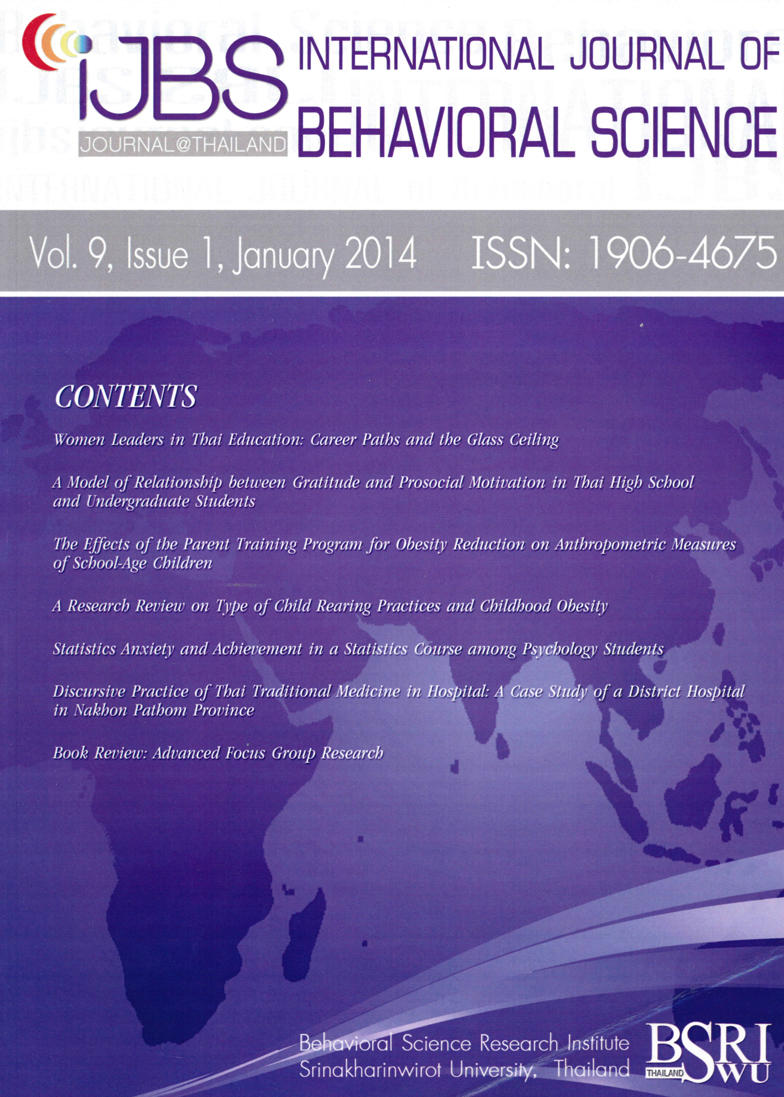A Study on the Relationships between Ethical Leadership, Work-life Balance, Organizational Socialization, and Organizational Citizenship Behavior of Teachers in Northern Thailand
Main Article Content
Abstract
The aims of this research were 1) to study the relationships between ethical leadership, work-life balance, organizational socialization, and organizational citizenship behavior among teachers, and 2) to determine if these variables were the predictors of the organization citizenship behavior among teachers. The sample consisted of 140 teachers working in schools in the north of Thailand, and were selected by the purposive sampling technique. The instruments used in this study were four questionnaires about ethical leadership, work-life balance, organizational socialization, and organizational citizenship behavior. Data were analyzed using the correlation and the Multiple Regression Analysis (MRA). The results showed that work-life balance and organizational socialization had significant positive correlations with the organizational citizenship behavior (r=.187, p<.05 and r=.353, p<.001, respectively). Moreover, ethical leadership, work-life balance, and organizational socialization together, could account for 14.3%, predict the organizational citizenship behavior teachers. Only organizational socialization had a significant and positive effect on the organizational citizenship behavior (β=.378, t=3.81, p<.001). Thus, the management of ethical leadership could help strengthen the organizational socialization and morality. Consequently, processing of organizational socialization in ethical way will promote being a good citizenship and work effectiveness in the organizations. In other words, if the employees can be happy and successful at work, their work-life balance can be positively and effectively managed as well.
Keywords: organizational citizenship behavior, organizational socialization, work-life balance, ethical leadership


